Apple ][ Myst Graphics Tradeoffs
I have frequently been asked why I use the Apple II lo-res mode
(40x48, 15 colors).
Why not use the hi-res (140x192, 6 colors), double lo-res
(80x48, 15 colors) or double hi-res (140x192, 15 colors)
modes instead?
Yes, the graphics would probably look better in those modes (see later
on in this writeup for some comparisons). There are various reasons
why I choose to use lo-res:
- I am lazy (I have a huge amount of
existing copying, decompression, and sprite code for lo-res,
not so much for hi-res).
Also the graphics modes on the Apple II are all horribly complex
and lores is simplest of the bunch.
- I want the game to run on my Apple II+ machine.
I usually target my games for a 48k Apple II+ with a
floppy drive and a color TV monitor. This would have been
a very nice but attainable system in 1979 or so, with few
real competitors. It's also probably the bare minimum for making
a decent video game (in my opinion).
- RAM limitations.
The more advanced graphics modes take
up a lot more RAM, which is in short supply on an 8-bit system.
If you no longer fit in RAM you'd have to load data from disk
more often which would slow down the gameplay.
The double graphics modes require 128k of RAM and an Apple IIe,
which wasn't released until 1983 and by then there was a lot
more competition in the 8-bit world. So for me at least it's
a lot less interesting of a challenge (and also a lot harder
code-wise, things relatively simple in regular lo-res like
copying a screen, drawing a software sprite, and page-flipping
get a lot more complex in addition to taking at least twice as much
RAM if not more, and have a much slower frame rate).
- Disk limitations.
I'm trying to fit on as few floppy disks as possible.
A game with 10 floppies worth of graphics
might look great but it would be a hassle to cart around.
In addition, Disk II loading times, while much better than
a Commodore 64 with 1541 drive, still get painful when you do a
lot of loading.
You might say, well why not assume a modern SD-card replacement
which can hold megabytes of data easily? True, but that's not
really the system I am aiming for and also it would be much less
of a challenge.
- 8-bit systems.
The game would probably look amazing on an Apple IIgs but I prefer
to work on the 8-bit systems. In any case the hardware in the IIgs
is actually not that much worse than you'd find in systems that
got official Myst ports so there's not a lot of challenge there.
Graphics Comparison
Here's some comparisons of what Myst might look like in the various graphics
modes. I show my hand-traced lo-res version, as well as the other
versions made with
Bill Buckels' bmp2dhr utility with Floyd-Steinberg dithering.
The SHR version was made with the SuperConverter 4.0 utility.
| Original Image from the Game |
|---|
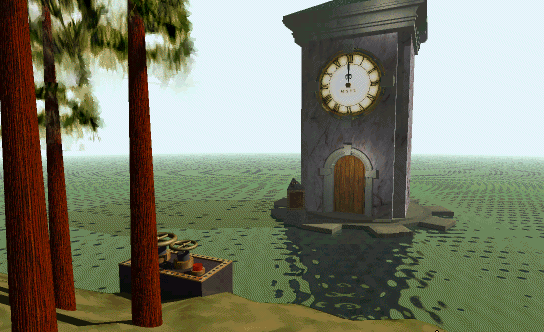
| 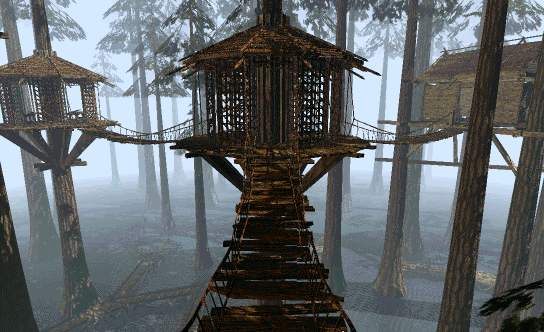
| 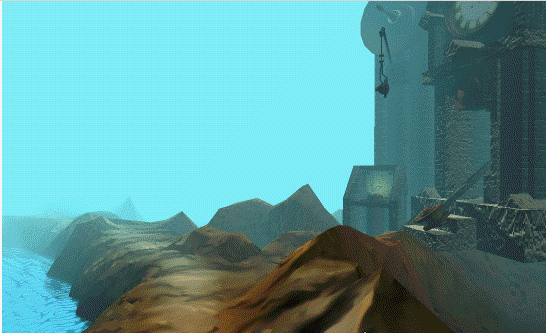
|
| Lo-res Hand Traced Version (40x48 15 colors, ~1kB) |
|---|
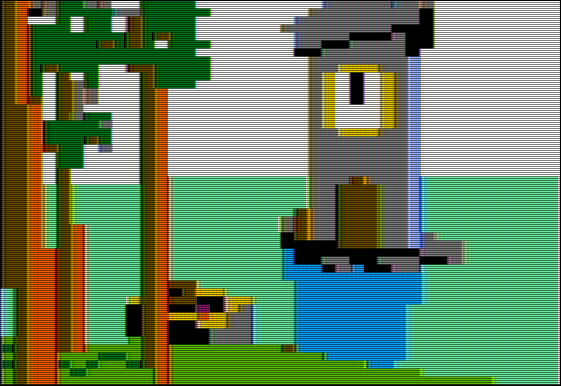
| 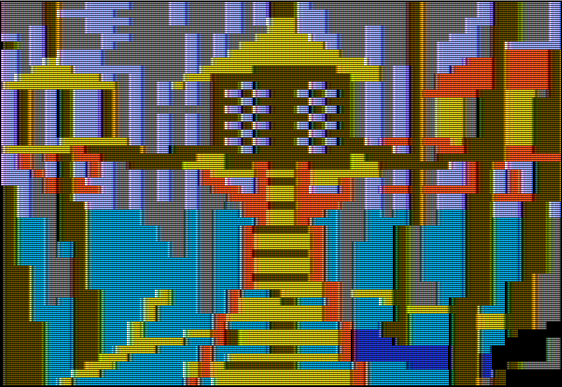
| 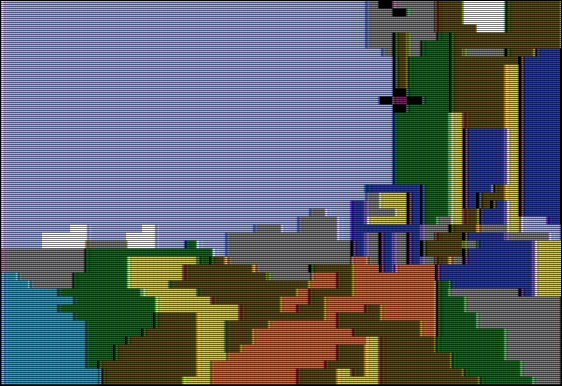
|
| Lo-res Autoconverted (40x48 15 colors, ~1kB) |
|---|
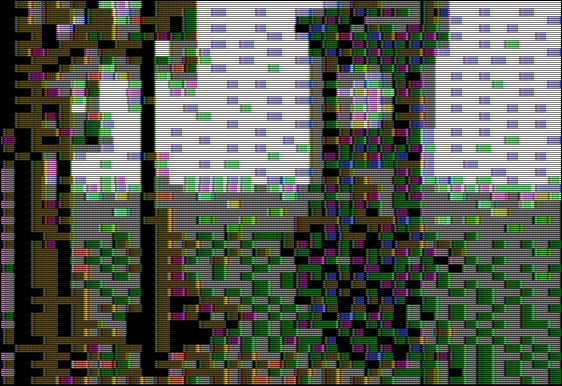
| 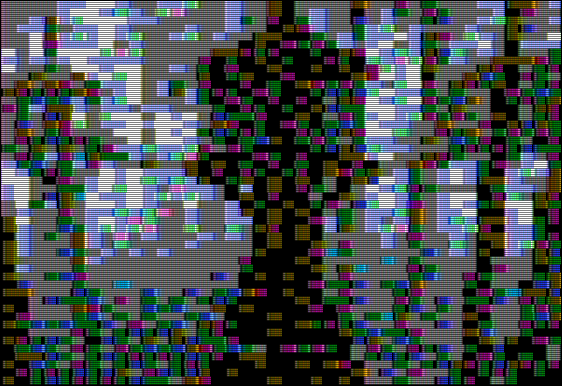
| 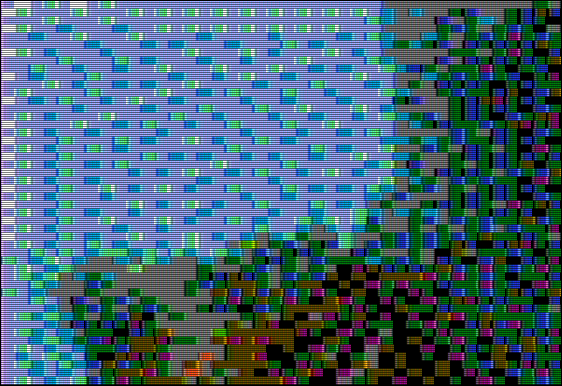
|
| Double Lo-res Autoconverted (Apple IIe, 80x48 15 colors, ~2kB) |
|---|
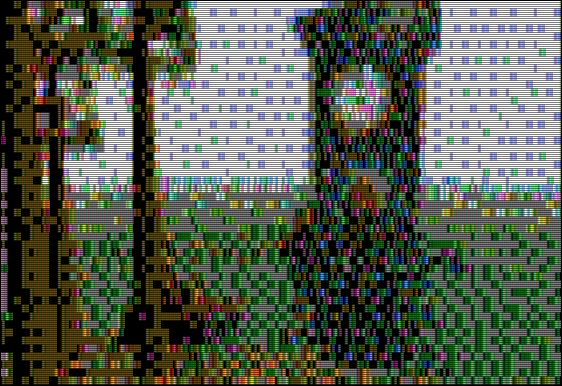
| 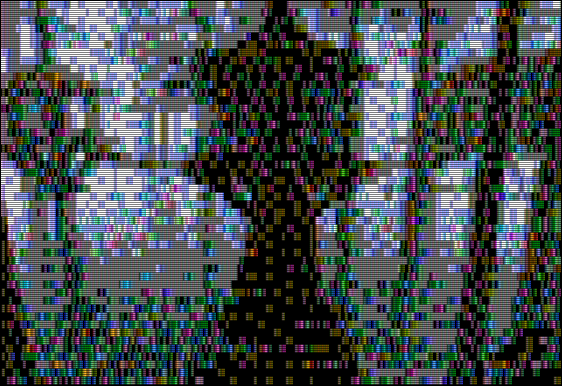
| 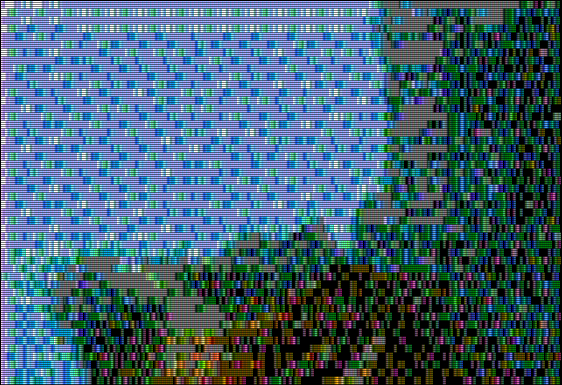
|
| Hi-res Autoconverted (140x192 6 colors, 8kB) |
|---|
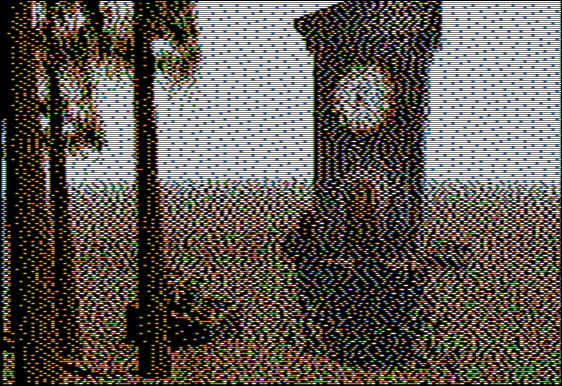
| 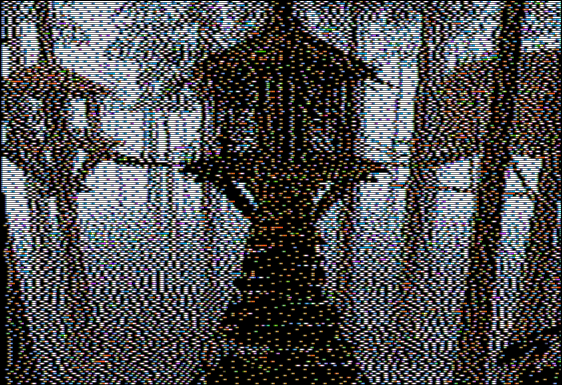
| 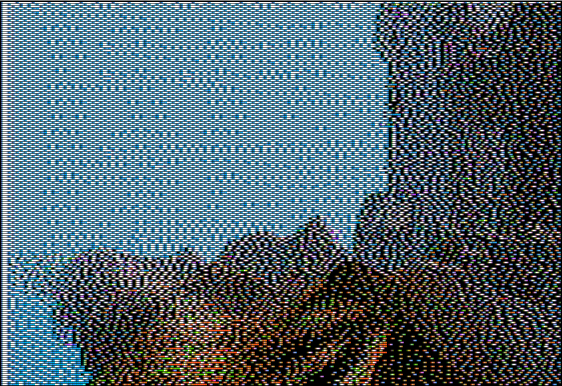
|
| Hi-res custom vector (140x192 6 colors, 8kB) |
|---|
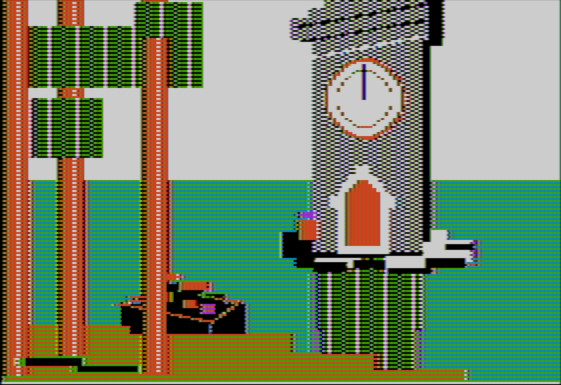
| TODO
| TODO
|
| Double Hi-res Autoconverted (Apple IIe, 140x192 15 colors, 16kB) |
|---|
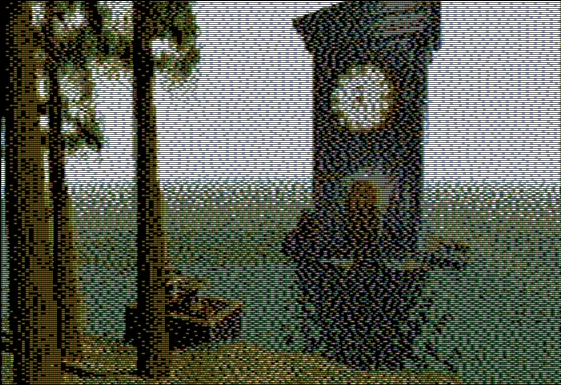
| 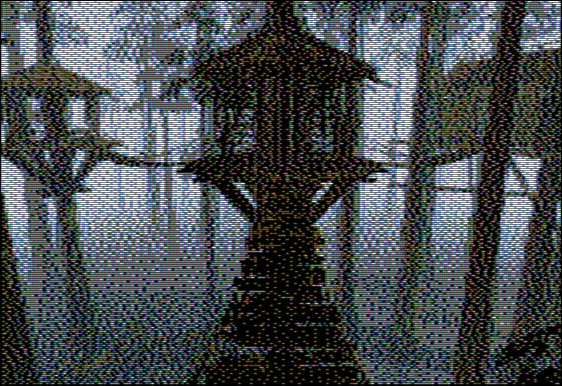
| 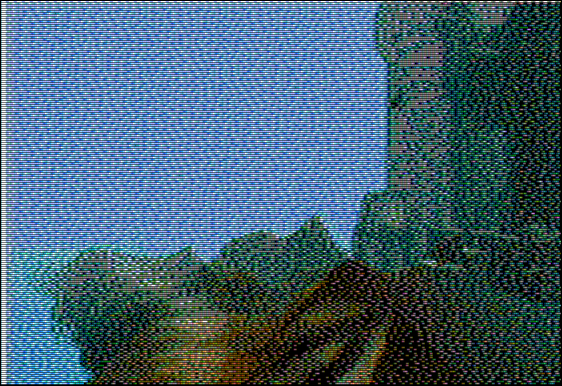
|
| Super Hi-res Autoconverted (Apple IIgs, 320x200, up to 4096 colors, 32kB) |
|---|
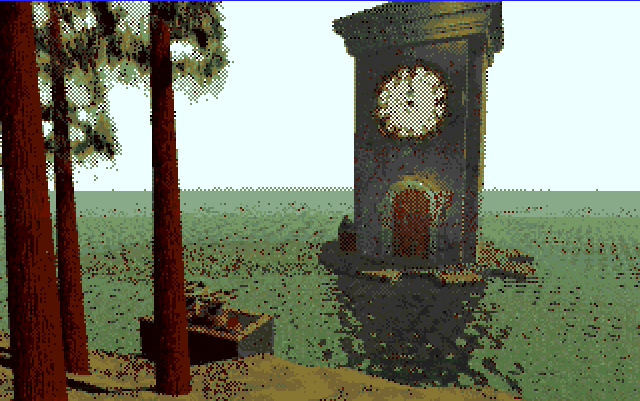
| 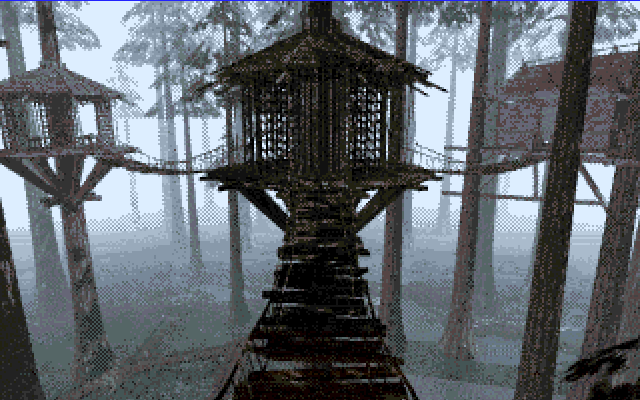
| 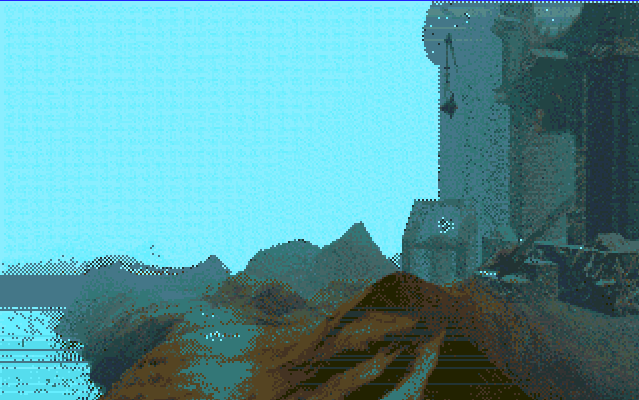
|
Back to the Mist demake page











































